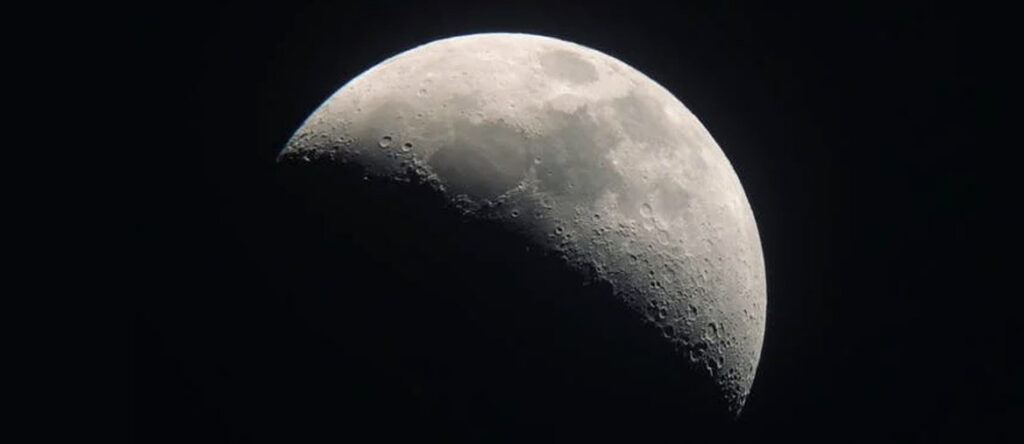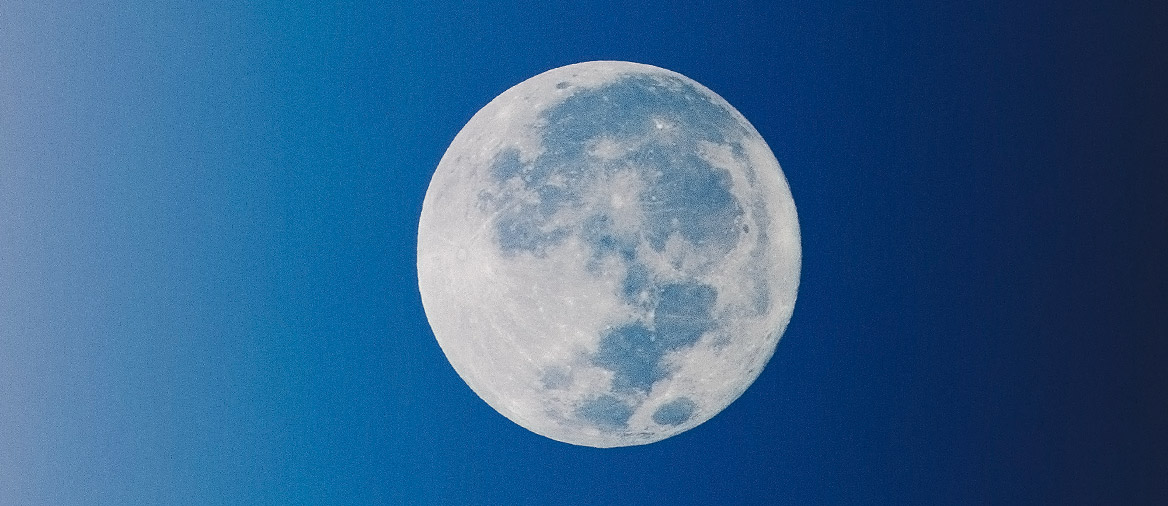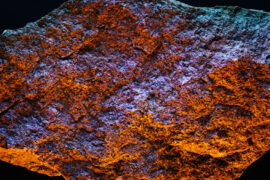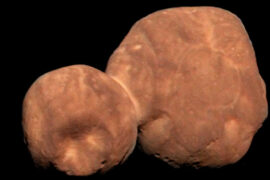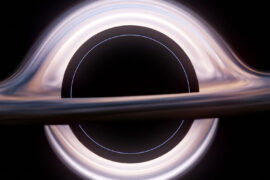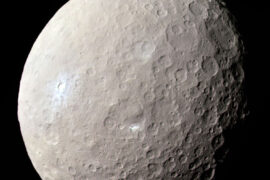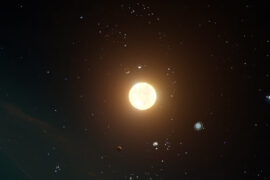| Moon | Earth | “month” |
| Phobos | Mars | Greek god of fear and panic |
| Deimos | Mars | Greek god of dread and terror |
| Io | Jupiter | Ancestor to Perseus, Cadmus, Heracles, and Minos |
| Europa | Jupiter | Mother of king Minos of Crete |
| Ganymede | Jupiter | Male hero of Troy. Served as Zeus cup-bearer in Olympus |
| Callisto | Jupiter | One of the nymphs. Daughter of king Lycaon and one of Artemis followers |
| Amalthea | Jupiter | Foster-mother of Zeus |
| Himalia | Jupiter | Nymph of the island of Rhodes. Had three sons with Zeus: Sparteus, Kronios and Kytos |
| Elara | Jupiter | Mortal princess, daughter of king Orchomenus and mother of the giant Tytios. |
| Pasiphae | Jupiter | Queen of Crete. Daughter of Helios and mother of the minotaur. |
| Sinope | Jupiter | Daughter of Ares and one of the Amazons. It is believed the Turkish city of Sinop is named after her. |
| Lysithea | Jupiter | Mother of Heracles and Zeus. Daughter of the titan Oceanus. |
| Carme | Jupiter | Mother of Britomartis, goddess of mountains and hunting |
| Ananke | Jupiter | Personification of necessity. It also means “constrain” or “force”. |
| Leda | Jupiter | Aetolian princess and later Spartan queen. |
| Thebe | Jupiter | Name used by a few of Zeus’ daughters. It is also the name of a city in central Greece. |
| Adrastea | Jupiter | Goddess of “inevitable fate”. Was in charge of nurturing and protecting Zeus. |
| Metis | Jupiter | First wife of Zeus and mother of Athena. |
| Callirrhoe | Jupiter | One of the Oceanids (daughters of the titan Oceanus) |
| Themisto | Jupiter | Daughter of the river god Inachus. |
| Megaclite | Jupiter | Princess of the Locris region. |
| Taygete | Jupiter | One of the Pleiades, daughter of the titan Atlas. |
| Chaldene | Jupiter | Mother of the hero Solymos. |
| Harpalyke | Jupiter | Princess of Arcadia. |
| Kalyke | Jupiter | Alternatively written as Calyce. Thessalian princess. It is also the name of one of the nymphs. |
| Iocaste | Jupiter | Named after Jocasta, daughter of king Menoeceus and wife of Oedipus. |
| Erinome | Jupiter | In her story, Venus compelled her to fall in love with Jupiter to ruin her. |
| Isonoe | Jupiter | One of the Danaides. Zeus turned her into a spring after her death. |
| Praxidike | Jupiter | Greek goddess of punishment. |
| Autonoe | Jupiter | Theban princess and eldest daughter of Cadmus. |
| Thyone | Jupiter | Also known as Semele. Youngest daughter of Cadmus. |
| Hermippe | Jupiter | Daughter of Boetus. Had a son with Poseidon. |
| Aitne | Jupiter | The personification of mount Etna |
| Eurydome | Jupiter | Also known as Eurynome or Euanthe. Mother of the Graces, goddesses of charm, beauty, goodwill, and creativity |
| Euanthe | Jupiter | See above |
| Euporie | Jupiter | Also known as Euporia. Greek goddess of abundance. |
| Orthosie | Jupiter | Greek goddess of prosperity and one of the Horae. |
| Sponde | Jupiter | One of the Horae (goddesses of seasons and time periods) |
| Kale | Jupiter | One of the Graces or Charities (goddesses of charm, beauty, goodwill, and creativity) |
| Pasithee | Jupiter | One of the Graces or Charities (goddesses of charm, beauty, goodwill, and creativity) |
| Hegemone | Jupiter | One of the Graces or Charities (goddesses of charm, beauty, goodwill, and creativity) |
| Mneme | Jupiter | One of the three original muses (goddesses of literature, science, and arts) |
| Aoede | Jupiter | One of the three original muses (goddesses of literature, science, and arts) |
| Thelxinoe | Jupiter | One of the three original muses (goddesses of literature, science, and arts) |
| Arche | Jupiter | One of the muses |
| Kallichore | Jupiter | One of the nymphs |
| Helike | Jupiter | One of the nymphs |
| Carpo | Jupiter | Daughter of Zeus and one of the Horae (goddesses of the seasons) |
| Eukelade | Jupiter | Also written as Eucelade. One of the muses |
| Cyllene | Jupiter | A naiad (a spirit or nymph that hangs in rivers, lakes, streams or other water bodies) |
| Kore | Jupiter | Alternativve name for Persephone, daughter of Zeus and wife to Hades which made her queen of the underworld. |
| Herse | Jupiter | Personification of dew. Daughter of Zeus and the Moon (Selene). Also known as Ersa. |
| S/2010 J 1 | Jupiter | |
| S/2010 J 2 | Jupiter | |
| Dia | Jupiter | Daughter of Deioneus, wife of Ixion. |
| S/2016 J 1 | Jupiter | |
| S/2003 J 18 | Jupiter | |
| S/2011 J 2 | Jupiter | |
| Eirene | Jupiter | Personification of Peace. One of the Horae. |
| Philophrosyne | Jupiter | Spirit of friendliness and kindness. One of the Charities or Graces. |
| S/2017 J 1 | Jupiter | |
| Eupheme | Jupiter | Greek spirit of words of good omen, praise, and acclaims. |
| S/2003 J 19 | Jupiter | |
| Valetudo | Jupiter | Roman goddess of health and hygiene |
| S/2017 J 2 | Jupiter | |
| S/2017 J 3 | Jupiter | |
| Pandia | Jupiter | Greek representation of the Moon. Daughter of Zeus and Selene. |
| S/2017 J 5 | Jupiter | |
| S/2017 J 6 | Jupiter | |
| S/2017 J 7 | Jupiter | |
| S/2017 J 8 | Jupiter | |
| S/2017 J 9 | Jupiter | |
| Ersa | Jupiter | Personification of dew. Daughter of Zeus and the Moon (Selene). Also known as Herse. |
| S/2011 J 1 | Jupiter | |
| S/2003 J 2 | Jupiter | |
| S/2003 J 4 | Jupiter | |
| S/2003 J 9 | Jupiter | |
| S/2003 J 10 | Jupiter | |
| S/2003 J 12 | Jupiter | |
| S/2003 J 16 | Jupiter | |
| S/2003 J 23 | Jupiter | |
| S/2003 J 24 | Jupiter | |
| S/2016 J 4 | Jupiter | |
| S/2016 J 3 | Jupiter | |
| S/2018 J 3 | Jupiter | |
| S/2018 J 4 | Jupiter | |
| S/2021 J 1 | Jupiter | |
| S/2021 J 2 | Jupiter | |
| S/2021 J 3 | Jupiter | |
| S/2021 J 4 | Jupiter | |
| S/2021 J 5 | Jupiter | |
| S/2021 J 6 | Jupiter | |
| Mimas | Saturn | One of the Gigantes (giants). Son of Gaia (Earth) |
| Enceladus | Saturn | One of the Gigantes (giants). Son of Gaia (Earth) and Uranus (Sky) |
| Tethys | Saturn | One of the Titans. Mother of the Oceanids. |
| Dione | Saturn | One of the Titans |
| Rhea | Saturn | One of the Titans. Older sister of Cronus. |
| Titan | Saturn | Named after the Greek Titans |
| Hyperion | Saturn | Titan god of observation. Father of Helios, Eos, and Selene (the Moon) |
| Iapetus | Saturn | One of the Titans. Father of Atlas and Prometheus. Also written as Japetus |
| Phoebe | Saturn | One of the first generation Titaness. It means “shining” or “bright”. Original owner of the oracle of Delphi. |
| Janus | Saturn | Roman god of beginnings, duality, time, and doorways. |
| Epimetheus | Saturn | One of the Titans. Brother of Prometheus |
| Helene | Saturn | Named after Helen of Troy. Granddaughter of Cronus. |
| Telesto | Saturn | Personification of divine blessing and success. One of the Oceanids. |
| Calypso | Saturn | A nymph who lived in the island of Ogygia |
| Atlas | Saturn | One of the Titans. Condemned to hold up the sky for eternity after the Titanomachy |
| Prometheus | Saturn | One of the Titans. Known for stealing the fire of the gods and gifting it to humanity |
| Pandora | Saturn | Also known as Anesidora.It means “she who sends up gifts” |
| Pan | Saturn | God of the wild, sheperds, and flocks. |
| Ymir | Saturn | Ancestor to all the frost giants in Norse mythology. Also known as Aurgelmir, Brimir, or Bláinn |
| Paaliaq | Saturn | Named after after a fictional shaman in the book The Curse of the Shaman |
| Tarvos | Saturn | A divine figure of a bulle with thre cranes perched on its back |
| Ijiraq | Saturn | Shapeshifting creature in Inuit mythology |
| Suttungr | Saturn | A Jötunn (giant) in Norse mythlogy |
| Kiviuq | Saturn | A hero in Inuit mythology |
| Mundilfari | Saturn | Father of the Sun and the Moon in Norse mythology |
| Albiorix | Saturn | Named after a Gallic giant who was said to be “king of the world” |
| Skathi | Saturn | Also known as Skadi or Skaði. A goddess associated with bowhunting, skiing, winter, and the mountains |
| Erriapus | Saturn | A giant in Gaulish (Celtic) mythology |
| Siarnaq | Saturn | Inuit goddess of the sea. Also kown as Sedna |
| Thrymr | Saturn | King of the Jǫtnar in Norse mythology |
| Narvi | Saturn | Named after Narfi, a Jötunn (giant) in Norse mythlogy |
| Methone | Saturn | One of the Alkyonides, the seven beatiful daughters of Alkyoneus |
| Pallene | Saturn | One of the Alkyonides, the seven beatiful daughters of Alkyoneus |
| Polydeuces | Saturn | Alternative name for Pollux, son of Zeus and Leda |
| Daphnis | Saturn | A Sicilian sheperd, descendant of the Titans |
| Aegir | Saturn | Personification of the tranquil seas in Norse mythology |
| Bebhionn | Saturn | Irish goddess of birth |
| Bergelmir | Saturn | A giant of Norse mythology. Grandsonof Ymir |
| Bestla | Saturn | Mother of Odin |
| Farbauti | Saturn | Father of Loki |
| Fenrir | Saturn | Giant wolf from Norse mythology |
| Fornjot | Saturn | A giant of Norse mythology |
| Hati | Saturn | Giant wolf from Norse mythology. Son of Fenrir |
| Hyrrokkin | Saturn | A female Jötunn (giant) |
| Kari | Saturn | Personification of wind in Norse mythology |
| Loge | Saturn | Also named Logi. A fire Jötunn (giant) |
| Skoll | Saturn | Giant wolf from Norse mythology. Son of Fenrir |
| Surtur | Saturn | Also known as Surt. Leader of the fire fire Jötunn (giants) |
| Anthe | Saturn | It means “flowery”. One of the Alkyonides, the seven beatiful daughters of Alkyoneus |
| Jarnsaxa | Saturn | A female Jötunn (giant) |
| Greip | Saturn | A female Jötunn (giant) |
| Tarqeq | Saturn | A lunar (moon) deity in Inuit mythology |
| Aegaeon | Saturn | One of the hekatonkheires, three giants of Greek mythology |
| Gridr | Saturn | A female Jötunn (giant) |
| Angrboda | Saturn | A female Jötunn (giant) |
| Skrymir | Saturn | Master of illusions and master of castle ruler of the castle Útgarðr in Norse mythology |
| Gerd | Saturn | Wife of the god Freyr |
| S/2004 S 26 | Saturn | |
| Eggther | Saturn | A Jötunn (giant) who raises wolves |
| S/2004 S 29 | Saturn | |
| Beli | Saturn | A Jötunn (giant) |
| Gunnlod | Saturn | A female Jötunn (giant) |
| Thiazzi | Saturn | A Jötunn (giant). Father of Skadi |
| S/2004 S 34 | Saturn | |
| Alvaldi | Saturn | A Jötunn (giant). Father of Thiazzi |
| Geirrod | Saturn | A Jötunn (giant) who was killed by Thor |
| S/2004 S 7 | Saturn | |
| S/2004 S 12 | Saturn | |
| S/2004 S 13 | Saturn | |
| S/2004 S 17 | Saturn | |
| S/2004 S 21 | Saturn | |
| S/2004 S 24 | Saturn | |
| S/2004 S 28 | Saturn | |
| S/2004 S 31 | Saturn | |
| S/2004 S 36 | Saturn | |
| S/2004 S 37 | Saturn | |
| S/2004 S 39 | Saturn | |
| S/2006 S 1 | Saturn | |
| S/2006 S 3 | Saturn | |
| S/2007 S 2 | Saturn | |
| S/2007 S 3 | Saturn | |
| S/2009 S 1 | Saturn | |
| S/2019 S 1 | Saturn | |
| Ariel | Uranus | Named after a character in Alexander Pope’s works. |
| Umbriel | Uranus | Named after the “dusky melancholy sprite” in Alexander Pope’s works. |
| Titania | Uranus | Named after a charcter in Shakespeare’s play A Midsummer Night’s Dream |
| Oberon | Uranus | Named after a charcter in Shakespeare’s play A Midsummer Night’s Dream |
| Miranda | Uranus | Named after a charcter in Shakespeare’s play The Tempest |
| Cordelia | Uranus | Named after a charcter in Shakespeare’s play King Lear |
| Ophelia | Uranus | Named after a charcter in Shakespeare’s play Hamlet |
| Bianca | Uranus | Named after a charcter in Shakespeare’s play The Taming of the Shrew |
| Cressida | Uranus | Named after a charcter in Shakespeare’s play Troilus and Cressida |
| Desdemona | Uranus | Named after a charcter in Shakespeare’s play Othello |
| Juliet | Uranus | Named after a charcter in Shakespeare’s play Romeo and Juliet |
| Portia | Uranus | Named after a charcter in Shakespeare’s play The Merchant of Venice |
| Rosalind | Uranus | Named after a charcter in Shakespeare’s play As You Like It |
| Belinda | Uranus | Named after a character in Alexander Pope’s works. |
| Puck | Uranus | Named after a charcter in Shakespeare’s play A Midsummer Night’s Dream |
| Caliban | Uranus | Named after a charcter in Shakespeare’s play The Tempest |
| Sycorax | Uranus | Named after a charcter in Shakespeare’s play The Tempest |
| Prospero | Uranus | Named after a charcter in Shakespeare’s play The Tempest |
| Setebos | Uranus | Named after a charcter in Shakespeare’s play The Tempest |
| Stephano | Uranus | Named after a charcter in Shakespeare’s play The Tempest |
| Trinculo | Uranus | Named after a charcter in Shakespeare’s play The Tempest |
| Francisco | Uranus | Named after a charcter in Shakespeare’s play The Tempest |
| Margaret | Uranus | Named after a charcter in Shakespeare’s play Much Ado About Nothing |
| Ferdinand | Uranus | Named after a charcter in Shakespeare’s play The Tempest |
| Perdita | Uranus | Named after a charcter in Shakespeare’s play The Winter’s Tale |
| Mab | Uranus | Named after a charcter in Shakespeare’s play Romeo and Juliet |
| Cupid | Uranus | Named after a charcter in Shakespeare’s play Timon of Athens |
| Triton | Neptune | Greek god of the sea. Son of Poseidon |
| Nereid | Neptune | Named after the Nereids, the sea-nymphs of Greek mythology |
| Naiad | Neptune | Named after the Naiads, spirts or nymphs of rivers, seas, fountains, etc. |
| Thalassa | Neptune | Pre-Greek word for “sea” and its representation in mythology |
| Despina | Neptune | Also known as Despoina. One of Poseidon’s daughter |
| Galatea | Neptune | One of the Nereids in Greek mythology |
| Larissa | Neptune | Nymph from Thelassy in Greek mythology |
| Proteus | Neptune | Shape-changing sea god in Greek mythology |
| Halimede | Neptune | One of the Nereids in Greek mythology |
| Psamathe | Neptune | One of the Nereids in Greek mythology |
| Sao | Neptune | One of the Nereids. Associated with “safety” and “rescue” at sea. |
| Laomedeia | Neptune | One of the Nereids in Greek mythology |
| Neso | Neptune | One of the Nereids in Greek mythology |
| Hippocamp | Neptune | Named after the mythological sea-horse creature |
